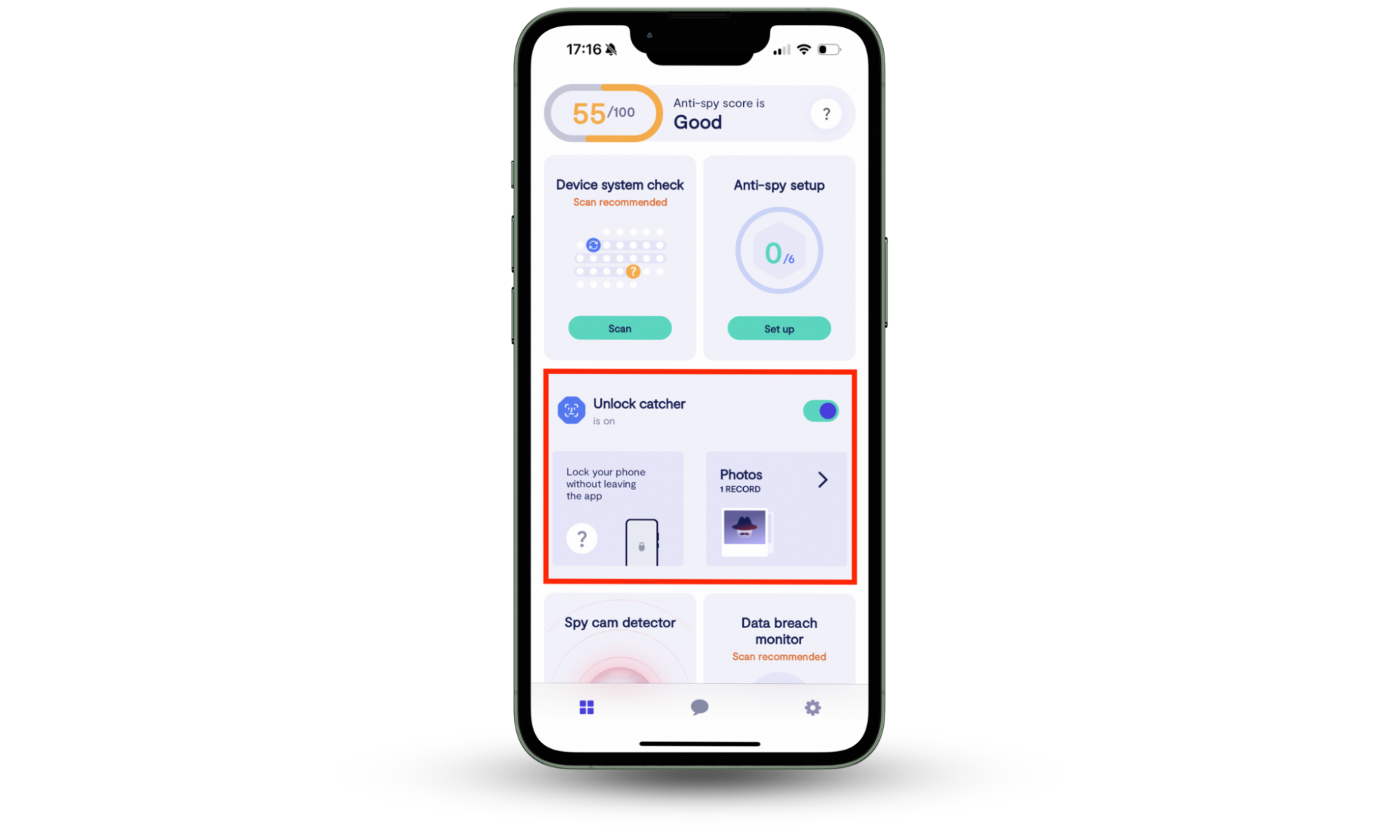Table of contents
- What are red flags in relationships
- 1. Emotional unavailability
- 2. Emotional rollercoaster (hot and cold behavior)
- 3. Love bombing
- 4. Social isolation
- 5. Constant jealousy
- 6. Anger management issues
- 7. Self-destructive or self-harming behavior
- 8. Overdependence on you
- 9. Controlling and manipulative behavior
- 10. Feeling a lack of emotional support from a partner
- 11. Giving more attention to others than you
- 12. You receive constant criticism from them
- 13. Dishonesty and lying about small things
- 14. Avoiding conversations about relationship problems
- 15. Threatening to end the relationship as manipulation
- What to do when you notice red flags in a relationship
- 1. Communicate your concerns
- 2. Set clear boundaries
- 3. Acknowledge your own needs
- 4. Avoid excessive emotionality
- 5. Seek professional help
- 6. Prioritize your well-being
- 7. End the relationship if necessary
- Conclusion
What are red flags in relationships
In relationships, red flags are warning signs of unhealthy or abusive behavior, such as control, dishonesty, or a lack of support. They may start small, but usually develop into patterns that harm self-esteem and, in more extreme cases, limit your freedom.
Next time you meet someone who feels promising, don’t mistake red flags for harmless quirks, personality differences, or simple incompatibilities. Those ‘little things’ can be early signs of deeper issues that, if ignored, can turn into patterns of control or abuse. Beware—not being able to identify a red flag may lead to an unhappy relationship ending in emotional and even physical abuse.
Learning to identify these behavioral patterns can help you set boundaries, protect your mental health, avoid toxic or controlling partners, and build relationships grounded in safety and respect.
Below, I’ve gathered a list of red flags every person should learn to recognize.
1. Emotional unavailability
An emotionally unavailable partner struggles with vulnerability, avoids intimacy, or withholds affection. You may notice they change the subject when conversations get personal, resist talking about their feelings, or dismiss your attempts to get closer.
Emotionally unavailable people often have avoidant attachment styles. It shows when someone dismisses closeness as “needy” or calls their exes “crazy”. These are deflections, not coincidences.
How to detect an emotionally unavailable person:
- Do they rarely use “I feel” statements?
- Do they avoid affection unless it’s on their own terms?
- Do you feel emotionally supported or like you’re always left guessing what they’re thinking?
Note
These signs are not universal and won’t identify every serial dater or person avoiding commitment. Some people may simply struggle with emotional expression. Still, asking yourself these three questions is a reliable way to gauge whether someone is emotionally available and willing to build a genuine connection with you.
2. Emotional rollercoaster (hot and cold behavior)
One day, they flood you with love, the next, they pull away. This push-pull dynamic destabilizes you emotionally, leaving you anxious, insecure, and often unable to focus on your daily responsibilities.
This often comes from an anxious-avoidant cycle. It feels intoxicating at first, but it can create long-term instability. Take it from me—I’ve once succeeded at turning an anxious-avoidant cycle into a long-term relationship. This IS a red flag, because guess what—I am single now.
How to detect hot and cold behavior:
- Track their affection: is it consistent or dependent on your compliance?
- Do you feel secure, or constantly off-balance with your partner?
- Does the relationship give you peace of mind or more anxiety?
3. Love bombing
At first, it looks like a fairy tale—lavish gifts, constant texts, declarations of “soulmate” love within weeks. I know how you feel, like all of the dreams to meet your prince have finally become reality. Unfortunately, this intensity is often a manipulation tactic to speed up your attachment. In reality, it is debt-based control disguised as generosity.
How to identify love bombing:
- Do they “keep score” of gifts or favors?
- Do they push for fast commitment despite having just met?
- Are gifts tied to expectations of loyalty or compliance?
- Does their affection feel genuine or overwhelming?
4. Social isolation
If your partner discourages you from seeing friends or family, criticizes your loved ones, or makes you feel guilty for spending time apart, this is a major red flag. Watch for micro-behaviors of control: sighs, sulking, or “jokes” that pressure you to reduce your outside connections.
You don’t need to confront them to understand if they are trying to isolate you socially, just ask yourself:
- Have you seen your friends and family significantly less since dating them?
- Do they guilt you when you spend time apart?
- Does your world feel smaller since they entered it?
The answers should be painfully obvious.
5. Constant jealousy
Jealousy is human, but constant suspicion or accusations are toxic. This isn’t about love—it’s about control.
In modern relationships, jealousy often turns into digital surveillance: demanding passwords, tracking locations, or secretly installing “parental control” apps.
If your partner or someone you’ve started seeing frequently questions your whereabouts or contacts, invades your privacy (messages, phone, accounts), or you feel monitored, it might mean they like to spy or digitally stalk you. Clario Anti Spy’s Unlock catcher helps expose this, snapping selfies of anyone who tries to open your phone without permission.
Here’s how you can identify the snooper with Clario Anti Spy’s Unlock catcher:
- Download Clario Anti Spy and create an account.
- Toggle the switch next to Unlock catcher.
- From now on, you will see everyone who tries to unlock your phone in the Photos folder in the Clario Anti Spy app.

Often, if your girlfriend still stalks her ex on social media, it can mean two things: lingering residual feelings or a pattern of digital stalking that might eventually involve you.
Do guys stalk their exes on social media? They absolutely do, and my previous statement applies to both sides.
6. Anger management issues
Explosive tempers or intimidation tactics in conflict are strong red flags you can see from afar. Even if not physical, volatility creates fear. Notice their body language: clenched jowls, eyerolls, and mocking smiles. According to Dr. John Gottman, a leading relationship researcher and psychologist, contempt is the strongest predictor of breakups.
How to detect people with anger management issues:
- Do they calm themselves in conflict or tend to escalate?
- Do you avoid topics for fear of outbursts?
- Do you feel safe expressing yourself, or always walk on eggshells?
If you felt uneasy answering these questions, you might be dealing with someone with anger management issues, be it a romantic partner or a friend.
7. Self-destructive or self-harming behavior
A partner struggling with addiction, reckless habits, or self-harm may create a toxic environment where you become a caretaker instead of an equal. This often leads to a rescuer–victim dynamic, where your needs disappear entirely in this context.
A rescuer–victim dynamic can be extremely hard to end. Your heart will break a million times before you put a stop to it.
How to understand if someone struggles with self-destructive or self-harming behavior:
- Do their struggles dominate the relationship?
- Do you feel responsible for saving them?
- Is your energy going into support without reciprocity?
Remember the “Tinder Swindler,” who, by the way, was finally arrested in Georgia a couple of days ago? This is a good example of someone who takes advantage of the rescuer–victim dynamic. By answering these three questions above, you will be able to identify the unhealthy dynamics and protect yourself before it turns bad.
Also, learn how to protect yourself from romance scams and avoid falling victim to the “Tinder swindlers” of the world.
8. Overdependence on you
It may feel flattering at first, but when they rely on you for every emotional, practical, or financial need, the relationship becomes codependent. Healthy love supports individuality, while unhealthy love collapses into dependence.
By answering these three questions, you will understand if your partner is overly dependent on you:
- Do they panic at the idea of separation?
- Do they avoid personal goals or independence?
- Do you feel free or drained and responsible for two lives?
If all three answers were “yes,” you know you’re in a codependent relationship. A big sign that will help you detect codependency early may be a fast-paced beginning of the relationship.
9. Controlling and manipulative behavior
Control often hides in small details—“advice” on what to wear, guilt-tripping you for going out, or criticizing your opinions. Manipulation often comes with mocking smiles, sighs, or “jokes”—training you to self-censor. For more, see the signs of a stalker boyfriend.
How to detect controlling and manipulative behavior:
- Do “jokes” often feel like rules?
- Do you feel punished for making small yet independent choices?
- Do you feel managed?
If the answers are “yes”, run. Of course, unless you’re already in love with them. In that case, try and shake it off, then run even faster.
10. Feeling a lack of emotional support from a partner
When a person you’re dating dismisses, mocks, or even ignores your emotions, you may feel unseen. Emotional neglect in relationships is as harmful as abuse. It can resemble scrolling through their phone while you’re sharing something that bothers you, or laughing off your struggles.
I know how you feel, and you are NOT alone in this. It is a serious red flag, and here are some extra tips on how to detect someone who withholds early on:
- Do they listen when you’re vulnerable or just brush it off?
- Do you feel comforted or invisible?
- Do your emotions feel valid or inconvenient?
11. Giving more attention to others than you
If your partner consistently prioritizes others over you, it signals neglect. It can make you feel you need to do more to make them notice you. However, it is not your fault—a partner showing more empathy to others than you isn’t just busy—they’re emotionally checked out. Someone who gives more attention to strangers than you isn’t just sociable—they have a wandering eye, and that’s the big boss of red flags if you ask me.
Try answering these questions below to understand if they really do value others more than you:
- Are you always last on their list?
- Do they respond more warmly to others than you?
- Do you feel valued or like an afterthought?
12. You receive constant criticism from them
Constructive feedback can be helpful and may build backbone, but constant nitpicking or harsh remarks can destroy your self-esteem and simply cost harm and thousands of dollars in therapy bills.
This often overlaps with gaslighting: “You’re too sensitive,” or “That never happened”. These comments make you doubt yourself—right where they want you to be so they can control you.
Are their “jokes” usually at your expense? Or, maybe, you feel smaller after conversations with this person? Do you often question your own memory or feelings? Pay attention to signs like these; your intuition will warn you.
13. Dishonesty and lying about small things
Repeated lies, even about “harmless” details, erode trust. If honesty isn’t present in small matters, it’s unlikely to exist in bigger ones. Dishonesty often comes with defensive body language—avoiding eye contact, overexplaining, or turning questions back on you. Have you ever noticed that in your partner when confronting them or asking questions?
How to detect dishonesty? Well, have you seen ‘Lie to Me’? Just kidding—I can’t teach you telepathy, but these simple signs are a solid way to find out:
- Are stories often inconsistent?
- Do they get defensive over simple questions?
14. Avoiding conversations about relationship problems
Refusing to discuss issues prevents conflict resolution and builds resentment, a silent killer of most relationships. This often comes as walking out, silent treatment, or just shutting down mid-conversation.
How to identify someone avoidant:
- Do they change the subject when you raise concerns?
- Do arguments stay unresolved?
- Do you feel heard?
If your Notes app is full of messages explaining how you feel, but sending them is not an option, then this is a sign that the person on the other end of the phone is unwilling to hear you.
15. Threatening to end the relationship as manipulation
Statements like “If you don’t do this, I’ll leave” are emotional blackmail. It’s the kind of manipulation that leaves you feeling like you have no options. If you want to avoid getting stuck in a situation like this, look for patterns of conditional love—affection when you comply, withdrawal when you resist. Love and affection should be given freely and openly, without conditions.
What to do when you notice red flags in a relationship
Have you identified any red flags in your relationship? The hardest part is yet to be revealed. What to do next? Well, first, do not ignore them. Start by communicating your concerns, setting firm boundaries, and reflecting on your own needs. If problems persist, prioritize your well-being and seek professional support. However, in more severe cases, where your well-being and health are threatened, consider ending the relationship to protect yourself from abuse.
Many people minimize their concerns, blame themselves, or hope their partner will change. Remember—ignoring these signs often leads to deeper issues, from emotional neglect to controlling, or even abusive behavior.
1. Communicate your concerns
If you feel safe, begin with an honest conversation. Use “I feel” statements instead of accusations. “I feel hurt when my privacy is dismissed” works better than “You always ignore me”. Choose a calm setting and explain the specific behaviors that trouble you. Open dialogue often uncovers misunderstandings. However, if your concerns are consistently ignored, that’s another warning sign, and you shouldn’t ignore it.
Although if you ignore your concerns and your partner also ignores them, they might go away. Just kidding, of course they won’t. You will simply start developing resentment.
2. Set clear boundaries
Boundaries are your way of saying what behavior you will and won’t tolerate. For example, “I need my phone and messages to remain private” sets a clear expectation.
Pro tip
Boundaries only work if you enforce them consistently—don’t make exceptions when they’re tested. Even though it may feel challenging, this is the only way of doing it. A partner who respects you will also respect your limits; a controlling partner will consistently push against them.
3. Acknowledge your own needs
It’s easy to focus only on your partner’s moods and behavior, especially as an anxious person or someone with people-pleasing tendencies. However, your needs always come first. Ask yourself: Do I feel supported? Do I feel safe? Do I feel free to be myself? Red flags often become clearer when you step back and evaluate whether your needs are met in a relationship.
4. Avoid excessive emotionality
I realize confronting red flags can bring out intense emotions. However, responding with rage or tears may blur your point and shift the focus away. This gives manipulative partners leverage to dismiss your concerns. Try to have a calm, but firm conversation, even if you feel anxious.
Remember, the goal isn’t to win an argument, but to protect your boundaries. Prioritize long-term gain over a brief victory.
5. Seek professional help
The age when going to therapy was shameful is gone—hopefully, forever. Therapy is a powerful tool that can help you gain clarity, strengthen your boundaries, and build the confidence to act on red flags.
A licensed counselor can also help you recognize patterns like gaslighting or codependency. If both partners are willing, couples therapy can be helpful, too, but only if both commit to real change.
6. Prioritize your well-being
Your health and happiness should come before saving a relationship. Spend time with friends and family, invest in hobbies that make you feel alive, and rebuild your self-esteem outside the partnership. This foundation should never be compromised because it gives you the emotional and mental stability and strength to deal with complicated issues like red flags in relationships.
If you feel your privacy is compromised or, worse, you feel like your partner’s actions are borderline controlling, tools like Clario Anti Spy’s Hidden app scan and Unlock catcher can protect your digital well-being by uncovering spyware and hidden trackers your partner might install.
Remember
You are not alone. Do not hesitate to ask for help, especially if your mental or physical health seems to be under threat.
7. End the relationship if necessary
If red flags persist despite communication and boundaries, ending the relationship may be the healthiest choice. Breakups are painful, but staying in an unhealthy relationship is far more damaging to your mental state and, as a result, physical health.
If control has already crossed into surveillance or abuse, ending this relationship is more of a self-preservation measure. Planning your actions can help immensely: consider where you’ll live, how you will support yourself, and who can help you.
Conclusion
I would divide the list of red flags discussed in this article into two categories: early-bird signs and ‘sleeping with the devil’ signs. Early-bird signs may look like little quirks at first, but they often grow into toxic patterns if ignored:
- Emotional unavailability
- Hot and cold behavior
- Love bombing
- Giving more attention to others than you
- Avoiding conversations about relationship problems
- Dishonesty and lying about small things
- Lack of emotional support
‘Sleeping with the devil’ signs are more severe warning signals that often point to controlling or abusive relationships:
- Social isolation
- Constant jealousy and surveillance
- Anger management issues
- Controlling and manipulative behavior
- Self-destructive or self-harming behavior
- Overdependence on you
- Constant criticism and gaslighting
- Threatening to end the relationship as manipulation
And if you’re worried that jealousy or controlling behavior has crossed into spying, don’t rely on gut feeling—instead, choose to protect yourself. Clario Anti Spy’s Unlock catcher will take a selfie of anyone who tries to open your phone without permission, giving you peace of mind and proof in case your privacy is being violated. Try Clario Anti Spy and regain control of your digital and emotional safety today.


